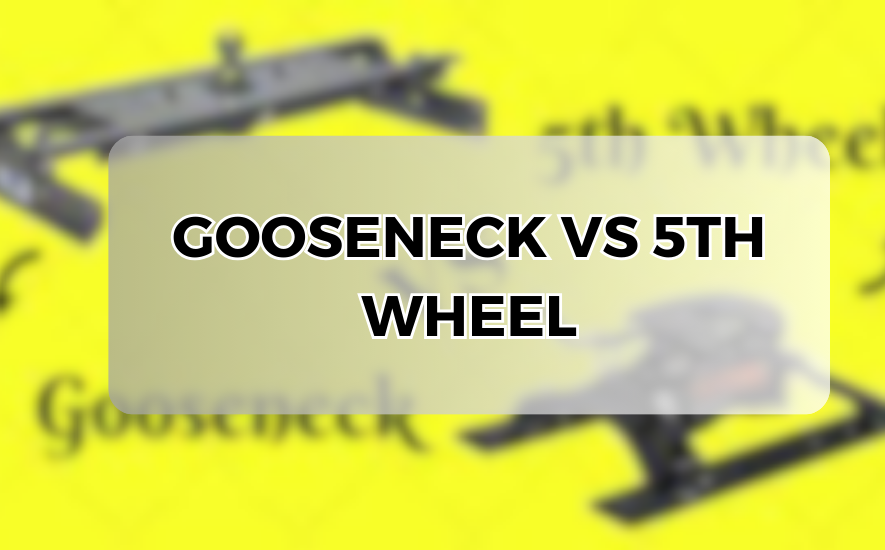Introduction:
When it comes to towing heavy loads, choosing the right hitch is crucial for safety and stability. Two popular options for towing trailers are gooseneck and fifth-wheel hitches. Each type has its own advantages and disadvantages, and understanding the differences between them can help you make an informed decision. In this article, we’ll compare gooseneck and fifth-wheel hitches to help you determine which one is best for your towing needs.
1. What are Gooseneck Hitches?
A gooseneck hitch is a type of trailer hitch that mounts in the bed of a pickup truck.
It consists of a ball mounted on a hitch plate that extends from the truck bed, providing a connection point for the trailer.
Gooseneck hitches are commonly used for towing heavy trailers, such as horse trailers, flatbed trailers, and RVs.
2. Advantages of Gooseneck Hitches:
Greater stability: Gooseneck hitches distribute the weight of the trailer more evenly over the truck’s rear axle, resulting in improved stability and handling.
Higher towing capacity: Gooseneck hitches can typically tow heavier loads compared to fifth-wheel hitches, making them ideal for hauling large trailers.
Better maneuverability: The design of gooseneck hitches allows for tighter turns, making them easier to maneuver in tight spaces.
3. What are Fifth-Wheel Hitches?
A fifth-wheel hitch is a type of trailer hitch that mounts in the bed of a pickup truck.
It consists of a large, horseshoe-shaped coupling mechanism that attaches to a kingpin on the trailer.
Fifth-wheel hitches are commonly used for towing large trailers, such as RVs and travel trailers.
4. Advantages of Fifth-Wheel Hitches:
Improved towing stability: Fifth-wheel hitches offer better stability and control when towing large trailers, especially at high speeds.
Easier hitching and unhitching: The design of fifth-wheel hitches allows for quick and easy coupling and uncoupling of the trailer.
More living space: Fifth-wheel trailers often have more interior living space compared to gooseneck trailers, making them popular choices for RV enthusiasts.
5. Factors to Consider When Choosing Between Gooseneck and Fifth-Wheel Hitches:
Towing capacity: Consider the weight of the trailer you plan to tow and choose a hitch that can safely handle the load.
Maneuverability: If you frequently tow in tight spaces or need to make sharp turns, a gooseneck hitch may be the better option.
Compatibility: Make sure your truck is compatible with the type of hitch you choose, as some trucks may require modifications for installation.
Conclusion:
Both gooseneck and fifth-wheel hitches offer advantages depending on your towing needs and preferences. Whether you prioritize towing capacity, stability, or maneuverability, there’s a hitch option that’s right for you. By understanding the differences between gooseneck and fifth-wheel hitches, you can make an informed decision and enjoy safe and reliable towing for years to come.




